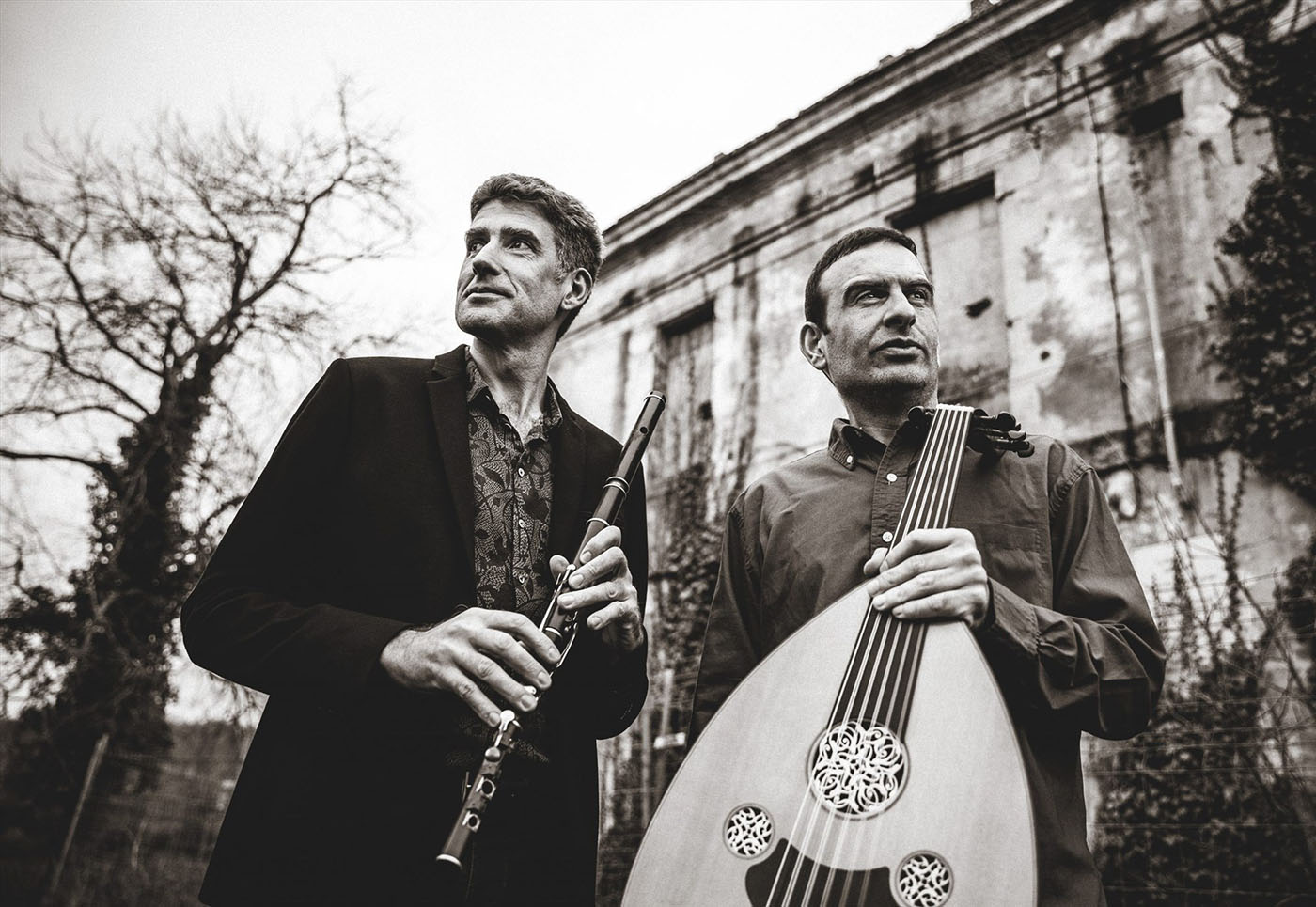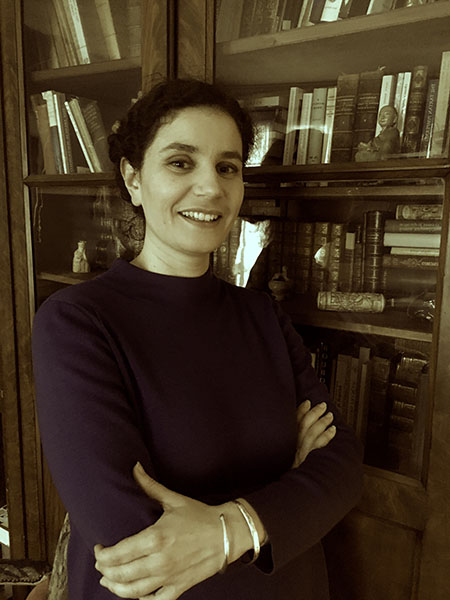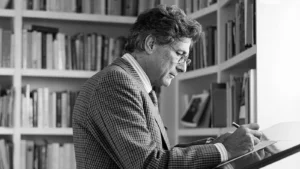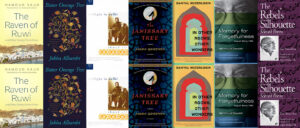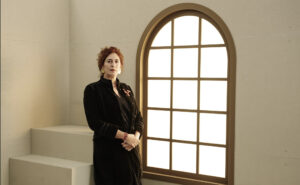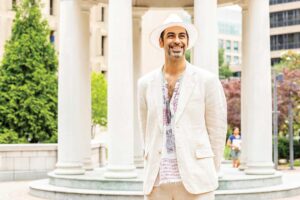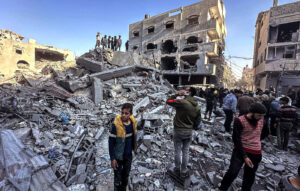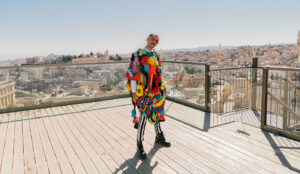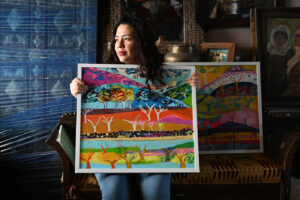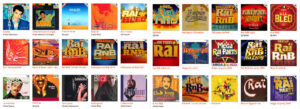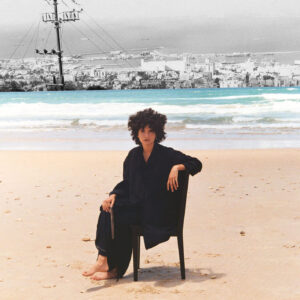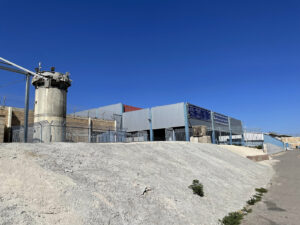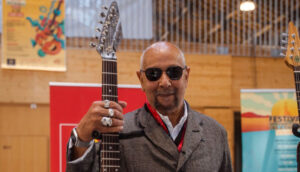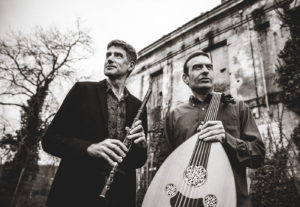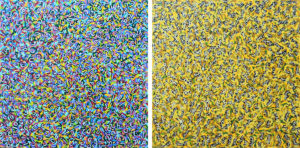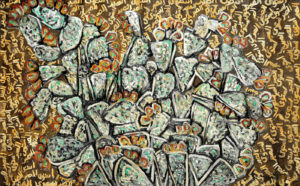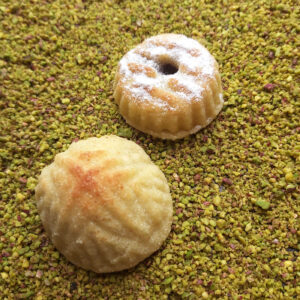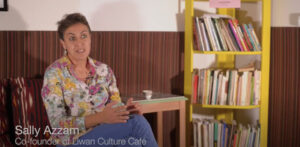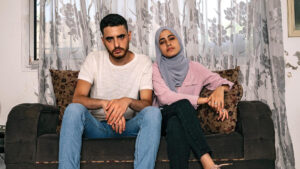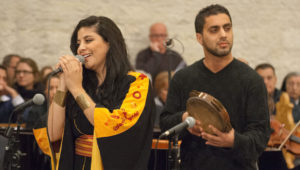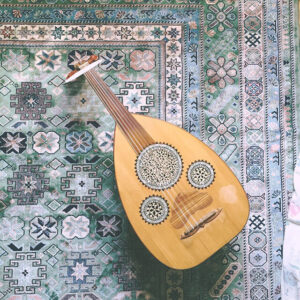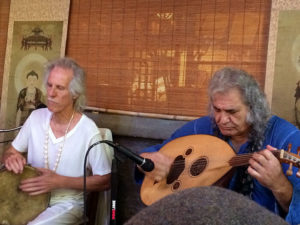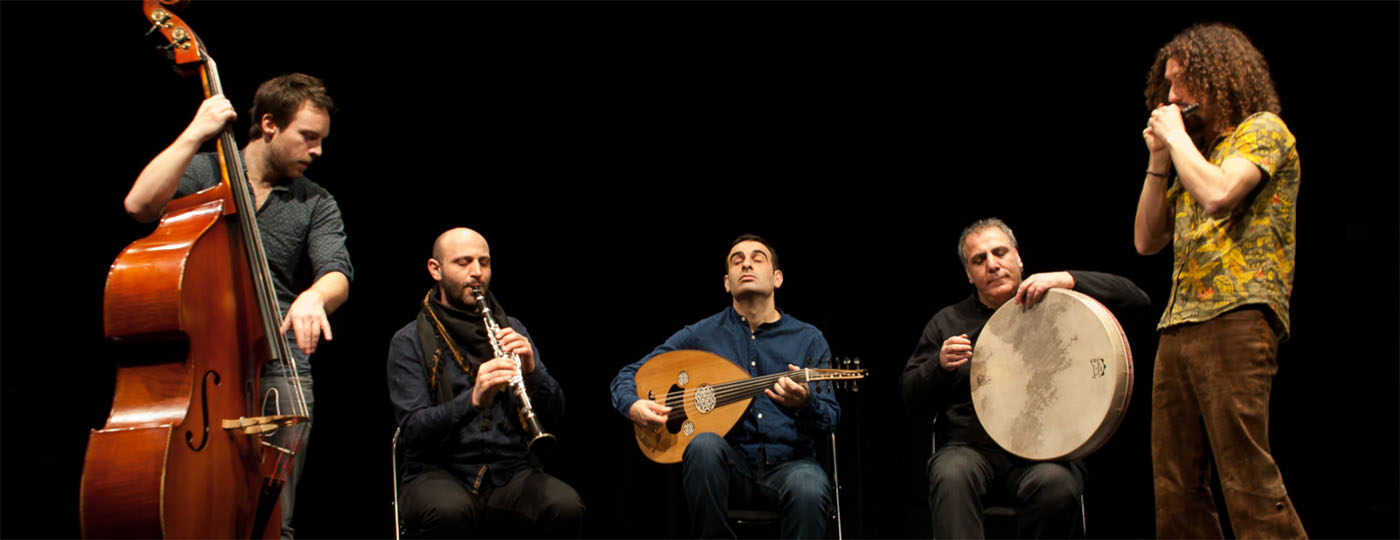
Melissa Chemam
Summer in France offers nearly unlimited opportunities to hear live music from the four corners of the earth. This season was for many musicians a welcome return to form, after the disruptions of Covid-19 over the last two years. In fact, July and August 2022 saw a wonderful series of concerts play out for France-based Palestinian oudist, percussionist and music teacher Yousef Zayed.
In an interview we did the other day, he noted that he had “performed a lot around the city of Poitiers, at festivals in Gennevilliers [near Paris], where I’m based, as well as at Festival Rhizomes, in a garden inside the Institut des Cultures d’Islam.”
The Rhizomes Festival offers free concerts across Paris’ parks, gardens and other outdoor spaces throughout the month of July, such as Parc Floral, canals, and the “Petite Ceinture,” on the outskirts of the French capital. With 10 dates on 14 sites, it helps to discover about 90 artists, from multiple generations and styles, via open air free concerts.
Born in Jerusalem in 1982, Yousef started playing darbuka as a child, soon tackling different instruments, including other Arab percussion and the oud. He studied percussion with Youssef Hbeish and oud with Khaled Joubran and Ahmad Al-Khatib at the Edward Said National Conservatory of Music, in Jerusalem, Palestine, then worked between Bethlehem and Ramallah.
“I started playing darbuka very young,” Yousef said. “I even built my own instruments with some of my parents’ pans and pots…I cried to them so I could play the drums. Then I learned more Palestinian music, but also had a rock ’n roll phase. I came to oud a bit later, and started playing Arab music, traditional Palestinian music, and influential Ottoman rhythms. Then I joined the conservatory as an oud and percussion player. I had wonderful teachers, especially the percussionist Youssef Hbeish. He became a friend and we lived very closely with our group of close musicians for years.”
Yousef soon began to perform all around the country. “It all happened very naturally for me, even if looking back, I realize it was an amazing journey,” he confessed. “I had these amazing teachers and trainers, friends to support me.”
Yousef reminded me that being a musician in Palestine is not an easy trade. There are few music venues, scant opportunities, and very small budgets, as well as all the administrative obstacles, not to mention the ongoing Israeli checkpoints that render travel arduous. Yet Yousef made the most of it and was met with enthusiasm. He even performed in Israel, in Nazareth, Haifa and other towns. “I performed for Israeli Palestinians or Palestinians living in Israel, whether they want to be called one or the other. I’m sure that quite early on I performed in front of pro-Palestinian Israelis, and often the festivals I played in ended up in political conversations…But for me, it quickly became pointless to argue about the future of Palestinians, while the situation kept worsening. Our main purpose was to focus on music. We’re not solving the political issues…”
Yousef then got invited all over the Arab world, to Jordan, Morocco, the UAE and Europe, especially to Spain, at first, then Sweden and France.
I realized that as Palestinians, wherever we are we feel dominated by others anyway, even at home. I understood that if I wanted to develop my projects, I had to live abroad.
“My first trip to Europe was to Athens in 1996, then I travelled to Europe for music regularly, to Spain and France. I liked it but I had never planned to leave Palestine. How I ended up living in France is another story…Actually, no journalist has ever asked me about it; it’s the first time I speak about these details. What happened is that my future wife wanted to apply for a grant to work in Paris as a teacher, in 2008. She had studied French at the French Institute of Ramallah for four years. She kept encouraging me to apply, too…
“But I had spoken Arabic all my life and was an Anglophone as well. I wasn’t sure it would be the right move. Then I realized that as Palestinians, wherever we are we feel dominated by others anyway, even at home. I understood that if I wanted to develop my projects, I had to live abroad. And I wanted to make my love happy, too. So, I finally applied, and we got married in 2008. A few months later, I received a grant, yet she didn’t.”
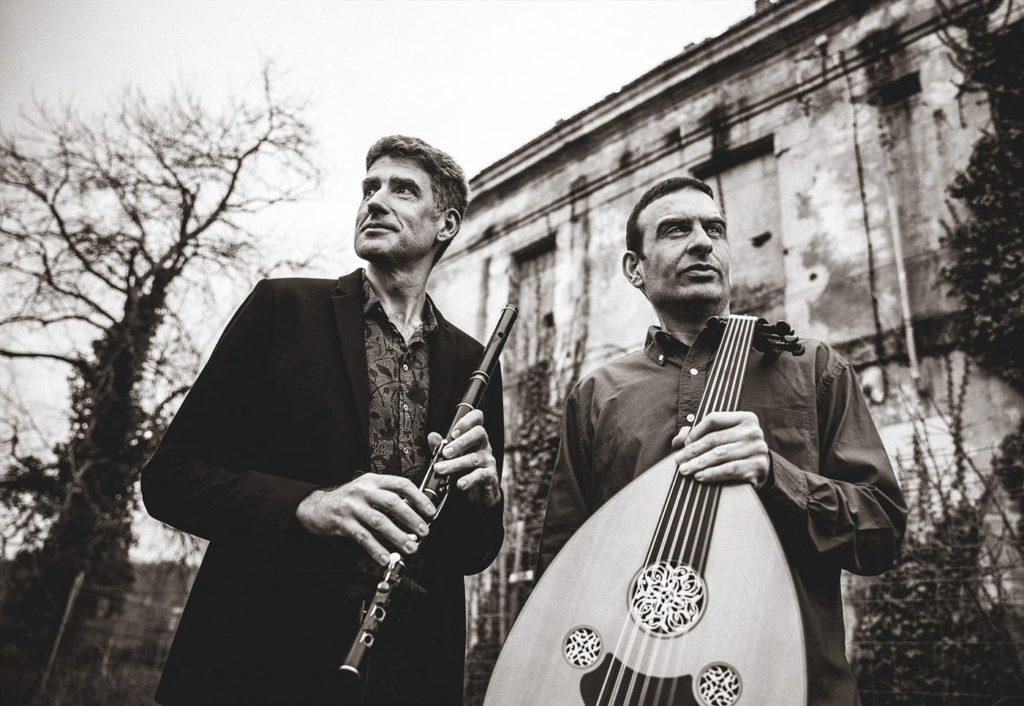
Nonetheless, Yousef’s wife couldn’t be happier for him. “She encouraged me to go — she said she would continue to try and join me. So, I arrived in 2009 and, by chance, I found the conservatory in Gennevilliers, where I’ve been teaching ever since. I worked very hard to learn French as I knew I needed to speak the language really well to move forward and develop my music. The English language had already been a key for me, it helped me so much. But French was essential to living here.”
Yousef speaks nearly flawless French, with almost no accent. Luckily, his wife, whom he met in Palestine when he was 12, managed to eventually join him.
As an experienced Palestinian musician, Yousef was quickly invited to give masterclasses in oud and Palestinian percussion, as well as conferences. And he started playing with fellow musicians, forming different musical projects. Living in France helped him to earn a living, as a teacher, and to travel and perform widely.
“I worked with the Algerian violinist Rachid Brahim-Djelloul and his sister, Amel, who’s a singer,” he told me. He has also played and recorded with various artists including Le Trio Joubran, L’Orchestre 2E2M, L’Orchestre Divertimento, Tunisian singer and musicologist Dorsaf Hamdani, the Hamon Martin Quintet, and Sister Marie Keyrouz, a catholic Maronite Lebanese religious singer.
More recently he performed with the Breton flautist Erwan Hamon, and with a quartet of musician friends he founded the Liouane quintet, with which he performed at Rhizomes Festival in Paris in July.
“Liouane is an ongoing project, even though we haven’t managed to release an album yet, because we’re still producing ourselves independently. But we’ll be performing further in the autumn with Erwan,” Yousef explained. “And I have another project of traditional Arab-Andalusian music, with a show in mind to be titled ‘Being,’ on the theme of exile, which will include text from philosophers, from Hannah Arendt to Edward Said, to be read by actors on stage. We’ll play music by Bach, Bartok and Ottoman composers.”
Meanwhile, he continues to happily teach Palestinian music in the department of Oriental music at the Edgar Varèse Conservatory in Gennevilliers. “The department has expanded since 2014 and we now have 75 students.”
Isn’t imparting the beauty of music via teaching, at the end of the day, one of the best ways to promote Palestinian culture?



